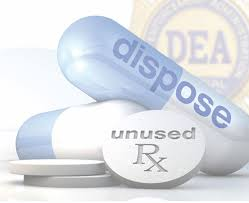The Van Buren County SAFE Coalition was
awarded the Iowa Partnership for Success (IPFS) Grant in February 2015 to
address underage drinking and underage binge drinking in Van Buren County. The coalition began the fifth year of this
five year grant on September 30, 2018.
The Van Buren County SAFE Coalition’s IPFS project is funded by the Iowa
Department of Public Health (IDPH), through the Substance Abuse and Mental
Health Services Administration (SAMHSA) of the U.S. Department of Health and
Human Services.
During the 2018-19 Fiscal Year the
coalition is continuing to build capacity and sustainability, evaluate the work
being done, and implement the five strategies it was funded to work on as
follows:
1) Alcohol Restrictions at
Community Events at Privately Owned Facilities: The coalition is working with
privately owned facilities to help them write, adopt, and implement alcohol
policies focused on the Best Practices for Alcohol Service at their location. During the 2018-19 Fiscal Year the coalition
members will continue to work with three of the ten facilities in Van Buren
County to encourage implementation of alcohol restrictions policies. One facility is in the process of writing
their new policy. The coalition has
worked with four facilities already to adopt and implement new written alcohol
restriction policies since 2016. One of
the facilities implemented a combined no alcohol allowed policy and a best
practices policy. Two of the other
facilities implemented a no alcohol allowed policy. The final facility implemented a best
practices policy. The coalition heard
from three of the facilities that they are not interested in written policies
right now. Two of the facilities
currently have a verbal no alcohol allowed policy. One does not want any kind of alcohol
restriction policy at this time. The
coalition would recommend that all facilities in the county put into place a
written alcohol restriction policy.
2) Alcohol Restrictions in Public
Places: Coalition members visited with each city council in 2017 to present
them with information on policies they could use that would address the
availability of alcohol to youth in public places, such as public parks and
community ball fields. Coalition members
visited with the city councils in early 2018 to find out if they are were
interested in implementing Alcohol Restriction Policies for their public
places. Four towns stated at that time that they are not interested in
implementing Alcohol Restriction Ordinances at this time. Another town has written policies for their ball
park and city park and will be hanging signs at the ball park that no alcohol
is allowed. One town is allowing the
coalition to participate in a community event planning committee that will set
policy for their community events and may allow a policy through this
committee. One town has committed to
writing and implementing a best practices alcohol restriction policy for their
community parks by the end of 2018. The
coalition is now working to find ways to work with the towns that have said
they are not interested in ordinances.
3) Substance Abuse Prevention
Programs for Youth: The coalition has been working with the Van Buren Community
School District to implement the Botvin Life Skills Training Program in the 7th
and 8th grades since the 2016-17 school year.
During the 2017-18 school year all of the 7th grade students completed
Level I of the curriculum and the 8th grade students completed Level II as the
curriculum builds on the information provided each year. The 8th grade students
were also able to complete an additional module that addressed prescription
drug safety with the help of the Jefferson, Keokuk, Van Buren, and Washington
Decategorization Board (Decat Board). For the 2018-19 school year the
curriculum will be taught by a different teacher so, the coalition and school
district with the help of the Decat Board made sure the teacher is trained and
ready for the new school year to implement the Life Skills program. In the 2018-19
school year the 7th grade will complete Level I and the 8th grade will complete
Level II.
4) Underage Drinking Prevention
Media Campaign: The coalition has worked with local media outlets to implement
IDPH’s “What Do You Throw Away” underage drinking prevention media
campaign. It is currently displayed on
posters in the Van Buren County Hospital & Clinics; posters and
screensavers at local libraries; and posters, electronic billboard ads, and
computer backgrounds at the Van Buren Community Middle/High School. During the
summer of 2018 the campaign was also displayed in poster form at local
convenience stores, the Keosauqua Pool, and at Lacey Keosauqua State Park. The coalition will continue to work with local
media outlets to ensure youth are exposed to the media campaign.



